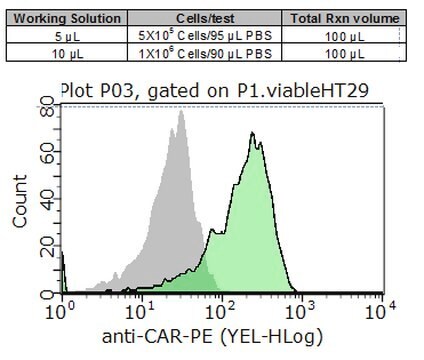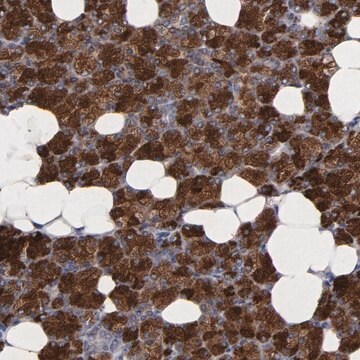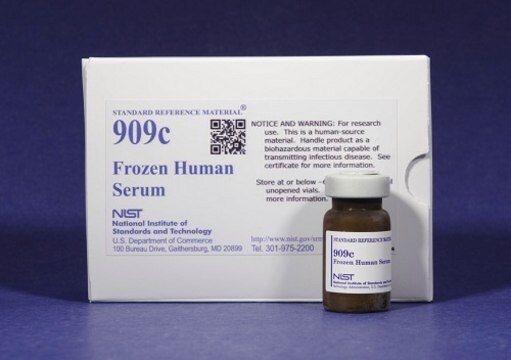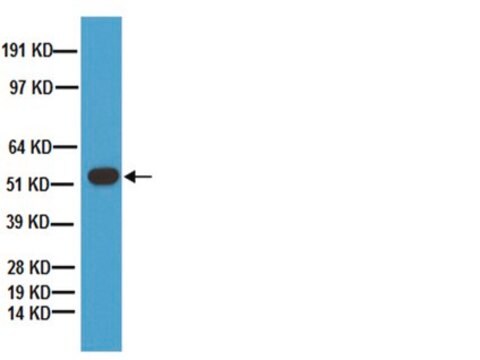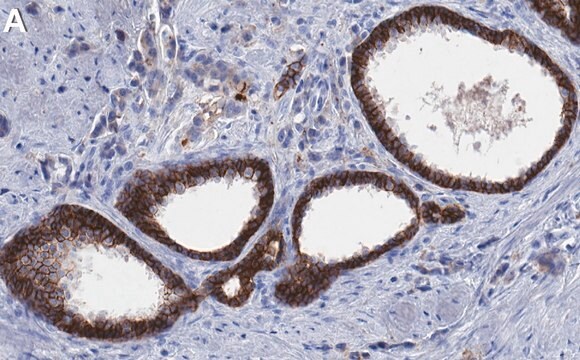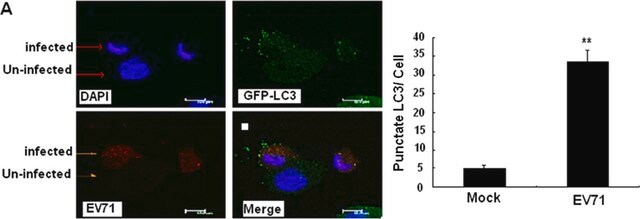05-644
Anti-CAR Antibody, clone RmcB
clone RmcB, Upstate®, from mouse
Synonym(s):
46 kD coxsackievirus and adenovirus receptor (CAR) protein, CVB3 binding protein, CVB3-binding protein, Coxsackievirus B-adenovirus receptor, coxsackie virus B receptor, coxsackie virus and adenovirus receptor
About This Item
Recommended Products
biological source
mouse
Quality Level
antibody form
purified immunoglobulin
antibody product type
primary antibodies
clone
RmcB, monoclonal
species reactivity
human, rat, mouse
manufacturer/tradename
Upstate®
technique(s)
immunocytochemistry: suitable
western blot: suitable
isotype
IgG1
NCBI accession no.
UniProt accession no.
shipped in
wet ice
target post-translational modification
unmodified
Gene Information
human ... CXADR(1525)
General description
Specificity
Immunogen
Application
1-2 μg/mL of a previous lot showed positive immunostaining for CAR in HeLa cells, hCAR transfected CHO cells, but not in untransfected CHO cells fixed with 4% paraformaldehyde and permeabilized with 0.2% Triton-X.
Quality
Western Blot Analysis:
1:500 dilution of this antibody detected Car on 10 µg of mouse small intestine lysates.
Target description
Physical form
Other Notes
Legal Information
Not finding the right product?
Try our Product Selector Tool.
Storage Class
10 - Combustible liquids
wgk_germany
WGK 1
Certificates of Analysis (COA)
Search for Certificates of Analysis (COA) by entering the products Lot/Batch Number. Lot and Batch Numbers can be found on a product’s label following the words ‘Lot’ or ‘Batch’.
Already Own This Product?
Find documentation for the products that you have recently purchased in the Document Library.
Our team of scientists has experience in all areas of research including Life Science, Material Science, Chemical Synthesis, Chromatography, Analytical and many others.
Contact Technical Service